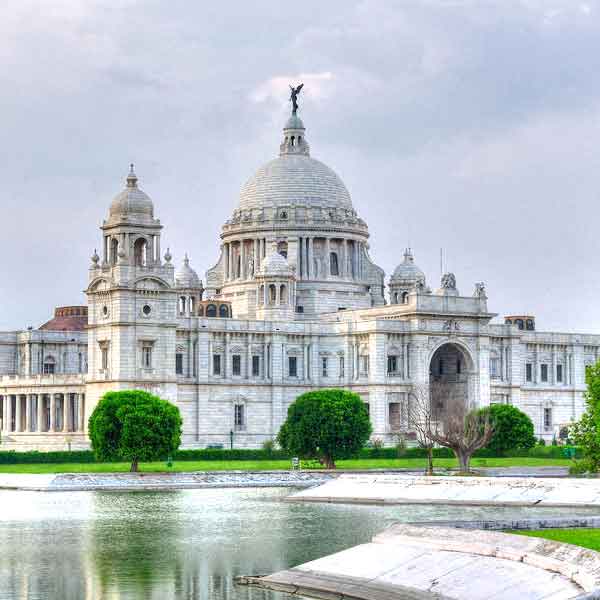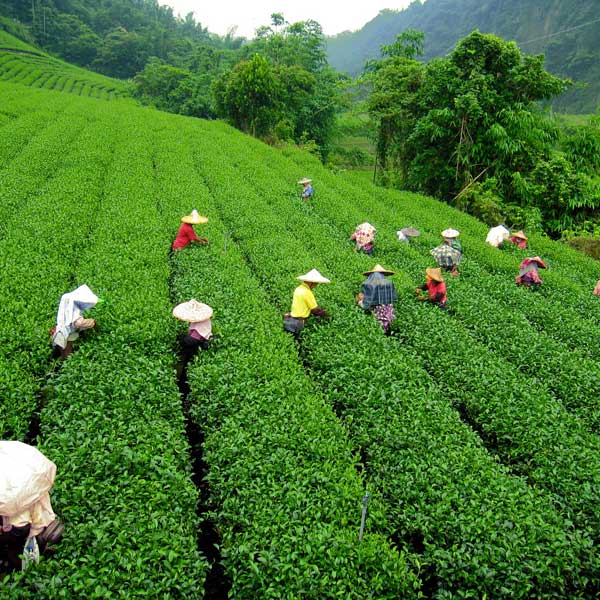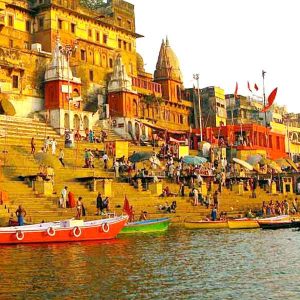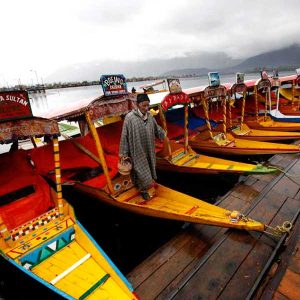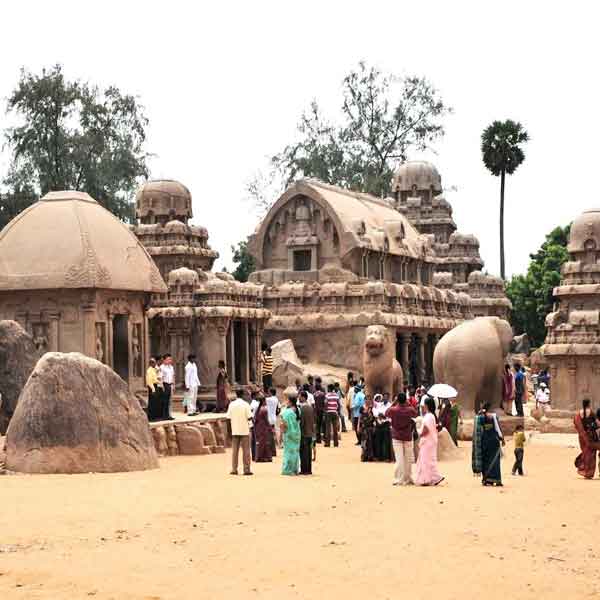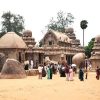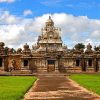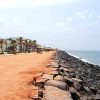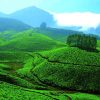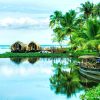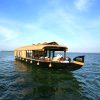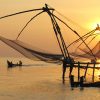Day 01: Arrive Chennai.
Meet and greet upon arrival, with transfers to your hotel.
Day 02: Chennai.
The morning is at your leisure to become acquainted with India. Afterwards, you’ll embark on a city tour of Chennai, starting with a visit to the Dakshina Chitra: a center for the living traditions of art, performing arts, crafts, and architecture. Traditional craftsmen & folk artists work and perform in the reconstructed period settings of 19th century streets, homes, and workshops. This is where you’ll have lunch. You will also visit the Cathedral of San Thome, and the Kapaleeswarar Temple. The Santhome Cathedral is last resting place of St. Thomas the Apostle, who brought Christianity to India in 52 AD. The Kapaleeshwara temple is an ancient Shiva Temple built in the typical Dravidian style.
Day 03: Chennai to Pondicherry, 180 km/4 hour drive.
After breakfast, depart for Pondicherry, visiting Mammalapuram en route. Visit the Shore Temple and the marvelous stone sculptures at Arjuna’s Penance in Mammalapuram. Upon arrival in Pondicherry, transfer to your hotel.
Day 04: Pondicherry.
Pondy (to its friends) or Puducherry (as it’s officially called) is a charming, cultured city – once the largest French colony in India – which despite recent growth still retains an extremely relaxed, laid-back, and distinctly Gallic feel. Better still, it’s an easy city to explore: there are French-speaking rickshaw drivers, and distances within the old quarter aren’t great. It boasts probably the loveliest seafront promenade in the country – a favorite for sunset strolls – and an old French quarter (separated from the chaotic Tamil districts by a canal) which is full of broad boulevards, whitewashed houses, newly restored boutique hotels, shops (for fabrics, leather, clothes and handmade paper) and Med-style restaurants and bakeries. The choice of cuisine is amazing; classic French, Vietnamese, Chinese and regional Indian – or just stop for a croissant and perfect fresh coffee.
Embark on a guided heritage walk this morning in the charming French Quarter, and visit the markets of Pondicherry. Afterwards, visit the Utopian society of Auroville, Established in 1968 to bring people together in peaceful and progressive harmony. Auroville was inaugurated in Feb 1968, and is a township created as an experiment in international living, where arts and crafts, yoga, meditation, and holistic living flourish. Spend the afternoon for a spot of shopping in town, which has particularly good textiles, leather, and pottery goods. Stroll along Pondicherry’s famous Provençal beach front promenade and admire the bright plaster houses, flower-laden balconies, and blue enamel street signs.
Day 05: Pondicherry to Tranquebar, 129 km/3 hour drive
After breakfast, continue on to the previous Dutch colony of Tranquebar, locally known as Tharangambadi. Upon arrival, check-in at a beautifully restored heritage hotel by the sea. Proceed to explore the town on foot. Entry to this town is through an impressive two hundred year old town gate built with Danish allure. Tranquebar conserves many other reminders of Danish heritage, most of them being colonial houses scattered around Kongensgade (or King Street), the main street. Homes with thick stucco walls, massive pillars supporting classical pediments, carriage porches, etc. remind you of the times when this busy trading center was an outpost of Danish culture.
Day 06: Tranquebar to Thanjavur, 100 km/2 hour drive
Continue on today into the Tamil heartland, towards the temple town of Thanjavur (formerly Tanjore). Thanjavur is one of the oldest cities in India, and has a long and varied history dating back to Sangam period. The city rose into prominence during the rule of the Cholas, when it served as the capital of the Chola empire. The city is an important center of South Indian art and architecture. Most of the Great Living Chola Temples which are UNESCO World Heritage Monuments are located in and around Thanjavur.
After arrival, you’ll walk through the imposing Brihadeshwara Temple complex (a UNESCO World Heritage site), which is a proud reminder of Dravidian excellence in art and architecture. The temple is listed among World Heritage sites, and dominates the entire skyline of the town. Here, you can observe the influence of history and culture in the crafts, food, and architecture of this bustling temple town.
Day 07: Thanjavur to Munnar, 322 Km/5-6 hour drive.
After early breakfast, drive towards the hill town of Munnar located across the border in Kerala. The route here takes you through some spectacular scenery, including: dense cloud forests, tea and spice plantations, quaint villages, homes, and winding mountain roads.
Munnar (5,000 feet), is the highest town of Kerala, with a cool, bracing climate exuding an old-world charm. The atmosphere is fragrant with extensive tea and cardamom plantations. There are enchanting high ranges, lakes, and streams, and beautiful views of low-lying clouds and the mist filled valleys below. Located at 5, 250 feet above sea level, this was once the summer resort of the former British Government in South India. Sprawling tea plantations, picture book streets, and winding lanes make Munnar a unique experience.
After some rest at your hotel, you will explore the rolling beautiful tea plantations and countryside. A walk through the Windermere Estate Cardamom Plantation is a treat for a naturalist. With a vast variety of bird species and evergreen trees, it is a great way to explore the area’s biodiversity. Visit the fascinating Nallathani Tata tea museum in Munnar. The museum at the Nallathanni Estate of Tata Tea in Munnar is a fitting tribute to the toils and rigors of its pioneers, who showed utmost determination, and were resolute in their efforts to transform Munnar into a major plantation center.
Day 08: Munnar.
Travel on to Eravikulam National Park, known to be one of the last surviving habitats of the highly endangered Nilgiri Tahr. Originally established to protect this rare antelope species, it covers an area of 37 square miles of rolling grasslands and high level evergreen forests. The park is breathtakingly beautiful, and is easily comparable to the best mountain ranges found anywhere in the world. The natural habitat of the Nilgiri Tahr is 8,840 feet above sea level. Half the world’s population of the rare mountain goat or tahr (which is fast becoming extinct), is now found here. The park is characterized by beautiful stunted forests, as well as a fantastic variety of bird and plant species. Continue on to the Kollukumalai Tea Estate in a 4X4 Jeep, known for being the estate with the world’s highest grown tea at an elevation of 8000 ft!! Enjoy stunning views of the montane landscape while here. Get insights into orthodox tea making, which is a seven-step process involving Withering, Rolling, Sieving, Fermenting, Drying, Fiber Extraction, and Grading.
Day 09: Munnar to Kumarakom, 169 km/5 hour drive.
Today, your journey continues to Kumarakom (105 miles/5 hour drive), located in the Kerala’s famous backwaters. For lunch, travel a short distance to the Kalaketty Estate, a traditional family run homestay where you can refresh yourself with a delicious home-cooked meal, served on the sprawling lawns of the bungalow. Home-grown organic fruits, vegetables, and spices add flavor and freshness to the meal. Afterwards, continue on to Kumarakom. Upon arrival, check-in at your accommodations for the night – at a quaint family-run property on a nearby island. Go for a sunset cruise in a country-made boat, or opt for an in-house Ayurveda massage.
Day 10: Kumarakom.
Today is at your leisure to explore the backwaters and the surrounding area.
Day 11: Kumarakom to Alappuzha on a Houseboat.
The first half of the day is at your leisure. Later on, drive to the boat jetty to board a traditional luxury houseboat, or, “Kettuvallom” to begin your cruise down the famed backwaters of Vembanad lake. This is a rare treat while you vacation in God’s Country, a backwater holiday on Kerala style houseboats. These palm covered country boats are designed to navigate the narrowest of canals. Almost 50 feet long, they are propelled from the bow and stern by two boatmen using punting poles. It has comfortable bedrooms (2 or 3 in one boat) with small en-suite facilities. There is also a large open side sitting area where meals using local fish and vegetables (prepared on board) are served. Embark on shore excursions while on the cruise. As you experience this world of simple pleasures, you will skim past ancient Chinese fishing nets, water lillies, lush paddy fields, coir villages, rustic homes, temples, and coconut groves. Enjoy a freshly cooked traditional dinner by your own cooks in the local Malabari style on board the boat.
Day 12: Alappuzha to Kochi 54 km/1hour 30 min drive.
Dive in to breakfast on board the cruise, followed by disembarkation and a drive to Kochi (formerly Cochin). Kochi has been luring wanderers and traders for over 600 years, and remains a living homage to its varied colonial past: giant fishing nets influenced by Chinese merchants, a 16th-century synagogue, ancient mosques, Portuguese houses built half a millennia ago and the crumbling residuum of the British Raj. The result is an unlikely blend of medieval Portugal, Holland, and an English country village grafted on to the tropical Malabar Coast. It’s a delightful place to spend some time, soak in the history, peruse art galleries and nap in some of the finest heritage accommodation in India.
Upon arrival, proceed on a half day sightseeing tour of the Fort Cochin area, visiting the Dutch Palace, Chinese Fishing nets, and Jew Street. Tonight, watch a dazzling Kathakali dance performance at a local theater. Kathakali is the dance form of Kerala, and is recognized as one of the four major classical Indian styles.
Day 14: Kochi to Mumbai by Air – Depart Mumbai.
Early morning transfer to the airport for your flight to Mumbai to connect to your international flight to onward destination.
Date and price to suit individual arrangements based on 2 people sharing. Breakfast included. Private air-conditioned car and driver with English speaking guides for sightseeing.

